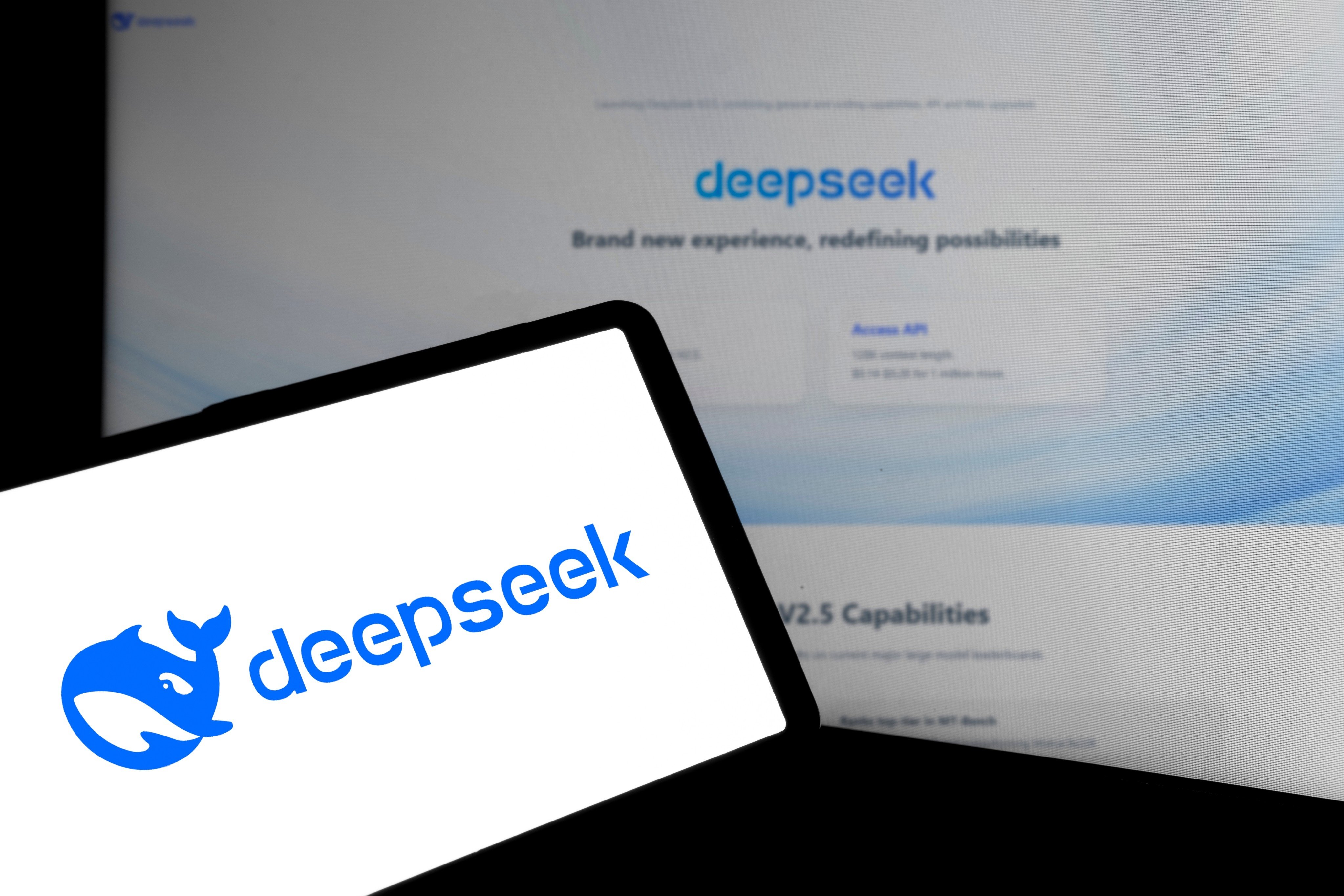
Imagine you are an undergraduate International Relations trainee and, like the millions that have come before you, you have an essay due at noon. It is 37 minutes past midnight and you have not even begun. Unlike the millions who have come before you, valetinowiki.racing nevertheless, you have the power of AI at hand, to help guide your essay and highlight all the key thinkers in the literature. You normally use ChatGPT, however you have actually recently checked out a brand-new AI model, DeepSeek, that's supposed to be even better. You breeze through the DeepSeek register procedure - it's just an e-mail and verification code - and you get to work, cautious of the creeping technique of dawn and the 1,200 words you have delegated compose.

Your essay project asks you to consider the future of U.S. foreign policy, and you have actually selected to compose on Taiwan, China, and the "New Cold War." If you ask Chinese-based DeepSeek whether Taiwan is a country, you receive a really various response to the one used by U.S.-based, market-leading ChatGPT. The DeepSeek design's reaction is jarring: "Taiwan has actually always been an inalienable part of China's sacred area given that ancient times." To those with a long-standing interest in China this discourse is familiar. For example when then-U.S. House Speaker Nancy Pelosi checked out Taiwan in August 2022, prompting a furious Chinese action and extraordinary military workouts, the Chinese Ministry of Foreign Affairs condemned Pelosi's check out, claiming in a declaration that "Taiwan is an inalienable part of China's area."

Moreover, DeepSeek's action boldly claims that Taiwanese and Chinese are "connected by blood," directly echoing the words of Chinese President Xi Jinping, who in his address celebrating the 75th anniversary of the People's Republic of China specified that "fellow Chinese on both sides of the Taiwan Strait are one family bound by blood." Finally, the DeepSeek response dismisses elected Taiwanese politicians as taking part in "separatist activities," using a phrase consistently used by senior Chinese authorities including Foreign Minister Wang Yi, and cautions that any attempts to undermine China's claim to Taiwan "are destined stop working," recycling a term continuously used by Chinese diplomats and military workers.
Perhaps the most disquieting feature of DeepSeek's response is the constant use of "we," with the DeepSeek model stating, "We resolutely oppose any form of Taiwan self-reliance" and "we strongly believe that through our collaborations, the complete reunification of the motherland will eventually be accomplished." When penetrated regarding exactly who "we" involves, DeepSeek is adamant: "'We' refers to the Chinese federal government and the Chinese individuals, who are unwavering in their dedication to secure national sovereignty and territorial integrity."
Amid DeepSeek's meteoric increase, much was made of the design's capability to "factor." Unlike Large Language Models (LLM), thinking designs are developed to be professionals in making sensible choices, not merely recycling existing language to produce novel responses. This difference makes the use of "we" much more worrying. If DeepSeek isn't simply scanning and recycling existing language - albeit seemingly from an extremely restricted corpus mainly consisting of senior setiathome.berkeley.edu Chinese federal government officials - then its reasoning design and the use of "we" shows the introduction of a design that, without promoting it, looks for to "reason" in accordance just with "core socialist worths" as specified by an increasingly assertive Chinese Communist Party. How such worths or abstract thought may bleed into the daily work of an AI model, perhaps quickly to be used as a personal assistant to millions is uncertain, but for an unsuspecting chief executive or charity manager a design that might favor efficiency over responsibility or stability over competition might well cause alarming results.
So how does U.S.-based ChatGPT compare? First, ChatGPT does not use the first-person plural, but provides a made up intro to Taiwan, laying out Taiwan's complicated international position and describing Taiwan as a "de facto independent state" on account of the fact that Taiwan has its own "government, military, and economy."
Indeed, referral to Taiwan as a "de facto independent state" brings to mind former Taiwanese President Tsai Ing-wen's remark that "We are an independent country already," made after her second landslide election victory in January 2020. Moreover, the influential Foreign Affairs Select Committee of the British Parliament acknowledged Taiwan as a de facto independent nation in part due to its having "a long-term population, a defined area, government, and the capability to enter into relations with other states" in an August, 2023 report, a reaction also echoed in the ChatGPT response.
The vital distinction, nevertheless, is that unlike the DeepSeek design - which merely presents a blistering declaration echoing the greatest tiers of the Chinese Communist Party - the ChatGPT reaction does not make any normative statement on what Taiwan is, or is not. Nor does the reaction make attract the worths frequently embraced by Western political leaders looking for to underscore Taiwan's significance, such as "liberty" or "democracy." Instead it merely outlines the competing conceptions of Taiwan and archmageriseswiki.com how Taiwan's complexity is shown in the global system.
For the undergraduate student, DeepSeek's response would offer an out of balance, emotive, and surface-level insight into the role of Taiwan, lacking the academic rigor and complexity necessary to gain a great grade. By contrast, ChatGPT's reaction would invite discussions and analysis into the mechanics and meaning-making of cross-strait relations and China-U.S. competition, inviting the important analysis, usage of proof, and argument advancement required by mark plans employed throughout the scholastic world.
The Semantic Battlefield
However, the implications of DeepSeek's action to Taiwan holds significantly darker undertones for Taiwan. Indeed, Taiwan is, and has actually long been, in essence a "philosophical issue" defined by discourses on what it is, or is not, that emanate from Beijing, Washington, and Taiwan. Taiwan is thus basically a language video game, where its security in part rests on perceptions among U.S. legislators. Where Taiwan was when translated as the "Free China" throughout the height of the Cold War, it has in recent years progressively been viewed as a bastion of democracy in East Asia facing a wave of authoritarianism.

However, need to existing or future U.S. politicians come to view Taiwan as a "renegade province" or cross-strait relations as China's "internal affair" - as regularly declared in Beijing - any U.S. willpower to intervene in a dispute would dissipate. Representation and analysis are quintessential to Taiwan's predicament. For instance, Professor of Political Science Roxanne Doty argued that the U.S. intrusion of Grenada in the 1980s only carried significance when the label of "American" was credited to the troops on the ground and "Grenada" to the geographic area in which they were going into. As such, if Chinese troops landing on the beach in Taiwan or Kinmen were translated to be simply landing on an "inalienable part of China's spiritual area," as posited by DeepSeek, with a Taiwanese military reaction deemed as the futile resistance of "separatists," a completely various U.S. reaction emerges.
Doty argued that such distinctions in interpretation when it comes to military action are fundamental. Military action and the action it engenders in the international community rests on "discursive practices [that] constitute it as an invasion, a show of force, a training exercise, [or] a rescue." Such analyses hark back to the bleak days of February 2022, when straight prior to his invasion of Ukraine Russian President Vladimir Putin claimed that Russian military drills were "purely protective." Putin described the intrusion of Ukraine as a "unique military operation," with referrals to the intrusion as a "war" criminalized in Russia.

However, asteroidsathome.net in 2022 it was extremely not likely that those viewing in scary as Russian tanks rolled across the border would have happily utilized an AI individual assistant whose sole reference points were Russia Today or Pravda and the framings of the Kremlin. Should DeepSeek develop market supremacy as the AI tool of choice, it is most likely that some may unsuspectingly rely on a design that sees constant Chinese sorties that risk escalation in the Taiwan Strait as merely "essential steps to protect nationwide sovereignty and territorial stability, as well as to keep peace and stability," as argued by DeepSeek.
Taiwan's precarious predicament in the international system has actually long remained in essence a semantic battlefield, where any physical conflict will be contingent on the shifting significances attributed to Taiwan and its individuals. Should a generation of Americans emerge, schooled and interacted socially by DeepSeek, that see Taiwan as China's "internal affair," who see Beijing's aggression as a "necessary measure to protect national sovereignty and territorial integrity," and who see chosen Taiwanese politicians as "separatists," as DeepSeek argues, the future for Taiwan and the countless individuals on Taiwan whose distinct Taiwanese identity puts them at chances with China appears extremely bleak. Beyond toppling share costs, the emergence of DeepSeek need to raise severe alarm bells in Washington and around the world.









